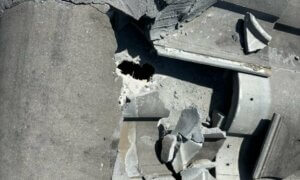SpaceX, Blue Origin, Virgin Galactic. These are the three names constantly turning up in the space race to the orbit and Mars. Backed by Musk, Bezos and Branson, these giant companies seem to have it all to conquer space. Is there any space left for emerging startups? The European Space Agency thinks so, as it encourages entrepreneurs to challenge the titans.
Frank Salzgeber, Head of Innovation and Ventures at ESA, told us how they have created the world’s biggest ecosystem for space-related startups and who we can expect at the finish line towards Mars.
At Bucharest Tech Week last month, his talk – “We need more space” – was one of the highlights of the Innovation Summit held at the beginning of the week.
What does he mean by that?
Simply put, “we need more space in our mind set; if we want to do new things, we have to be open.”
How is Frank and the ESA putting that belief into practice? By helping hundreds of startups make their space-related dreams a reality.
Take Lilium, for example. The German startup that we were talking about a while ago recently received $103 million funding, while their five-seater air taxi just concluded its maiden voyage. This wouldn’t have been possible without ESA’s help.
“If we do not support them, who else does? Our job is to help the young ones. […] Giving this helping hand is for entrepreneurs and tech startups super early, in the first phase”, said Frank, referring to the European Space Agency’s support for startups just like Lilium.
Indeed, Lilium is just one successful case of many. So far, the ESA has supported over 750 startups, creating over 5000 new jobs! The largest space entrepreneurship network in the world is set to expand to more than 50 European locations and 25 Business Incubation Centres by the end of this year.
What is the secret of their success?
On one hand, you might say it’s the heart of the startups, which Frank Salzgeber translates to a “positive ignorance”, the kind that makes them fight each and every day despite glaring obstacles.
On the other hand, it’s space itself. If you think about it, Frank says, “space is just a camera with a higher stand”. It sees everything and therefore, can relay information that influences agriculture, shipping, navigation and traffic, almost every aspect of our lives.
Improving our lives on Earth using space tech is a given. But what about exploring other planets? Is that a real possibility? Who will take us out there?
Frank’s answer in the video above!
Follow TechTheLead on Google News to get the news first.






















